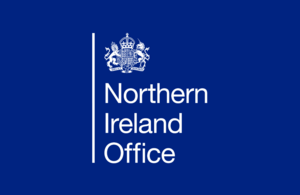Statement on the Tyrone Commemoration Committee parade in Castlederg
Earlier this afternoon, the Secretary of State for Northern Ireland met representatives of the Derg Valley Victims’ Voice.

Commenting after her meeting, Rt Hon Theresa Villiers MP said:
There is no doubt that this deeply insensitive parade is causing great hurt and distress to many victims of terrorism in the west Tyrone area and the rest of Northern Ireland.
This Government has always made clear that politically motivated violence, by any side, was never justified and we condemn attempts to commemorate or legitimise terrorism.
Everyone who wants to build a genuinely shared future for Northern Ireland needs to consider the impact of their actions on people from different parts of the community. This parade is damaging to community relations and even at this late stage I would call upon the organisers to think again and call it off.
On the issue of legal powers to ban the parade, these are restricted and narrowly defined. The criteria set out in legislation that would enable me to intervene are not satisfied in this case. I realise that will disappoint many but I am bound by the law.
That in no way diminishes my profound sympathy for the victims. I heard harrowing stories today from people who continue to grieve for loved ones and who have never received justice.
I was invited by the group to visit Castlederg, which I fully intend to do.
Powers of the Secretary of State:
- The powers of the Parades Commission and the Secretary of State in relation to parading are set out in the Public Processions (Northern Ireland) Act 1998.
- The Parades Commission cannot ban a parade outright, but it can place conditions on a proposed public procession. These most frequently involve a route restriction, restriction on music and the display of emblems, or the exclusion of accompanying supporters from contentious areas.
- The Parades Commission has similar powers to make determinations in relation to parade-related protests. Determinations issued by the Parades Commission are legally binding. The Parades Commission operates independently of Government.
- Under section 9 of the Act, the Secretary of State can revoke, amend or confirm a determination of the Parades Commission on a proposed parade, but only if the Chief Constable makes a formal request for her to review it.
- Section 11 of the Act sets out the Secretary of State’s powers to prohibit an individual parade or protest if she believes it is in the public interest to do so. She can also ban a particular type of parade or all parades in a specific area for a period of up to 28 days. In deciding to invoke this power, the legislation states that the Secretary of State would have to consider all of the following criteria: * whether the parade will cause serious public disorder or serious damage to property * whether it will cause serious disruption to the life of the community in the area * any serious impact on relationships within that community * if it will place undue demands on the Police Service of Northern Ireland or military forces
- This decision should be informed by consultations with both the Chief Constable and the Parades Commission.
- The Secretary of State would only intervene in the public interest if all of the above criteria were met. This has not happened since the legislation was introduced in 1998.